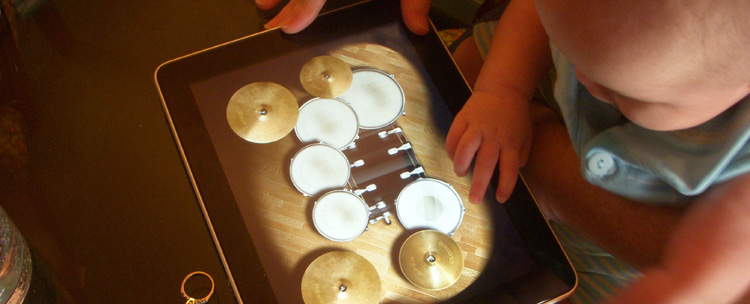Gotham Diary:
Physics
Now that my grandson can sit up and play with things, he’s got to solve a lot of physics problems, and it isn’t always fun. I watch him with the keenest interest, as he waves a wooden spoon, then tries to grab a snall piece of kitchen equipment that invariably darts farther from him each time he reaches for it.
There are many things to do with the items in Will’s homely colander, and it’s no wonder that every now and then he surrenders to the misery of being overwhelmed. When he cries, what usually works is hunkering down next to him to rearrange his stuff, as a kind of reset. Eventually, though, this doesn’t work, and Will has to be picked up and comforted and carried off to some other place.
Perhaps it’s simply that he wants a playmate. That’s something that the grandparents of bright children are apt to overlook. We think of Will as a self-sustaining genius. In fact, he’s far more sociable than we ever were.
Rest assured, though: we never let Will “cry it out.” We’re there, picking him up and asking what’s wrong, even though we know that he can’t tell us. The idea of charging a child who’s incapable of the most rudimentary self-expression with responsibility for his unhappiness strikes us as a deep barbarity. Equally barbarous is to think in terms of Will’s taking advantage of our sympathy.
About the physics lessons, I ask you to conduct the following experiment. Next time you cross a street, try to figure out how far from the kerb you can tell which foot will step onto it first. You’ll be surprised how far in advance you know which foot it is, even though you haven’t given the matter the slightest thought. So it is with much of what we do during the day, our brains working as mammoth processors for impalpable operations.
Although he is still an angel, Will has been kicked out of the Garden of Eden. He knows that life doesn’t always arrange itself properly, and he’s not happy about it. We can’t wait to talk to him about it.

